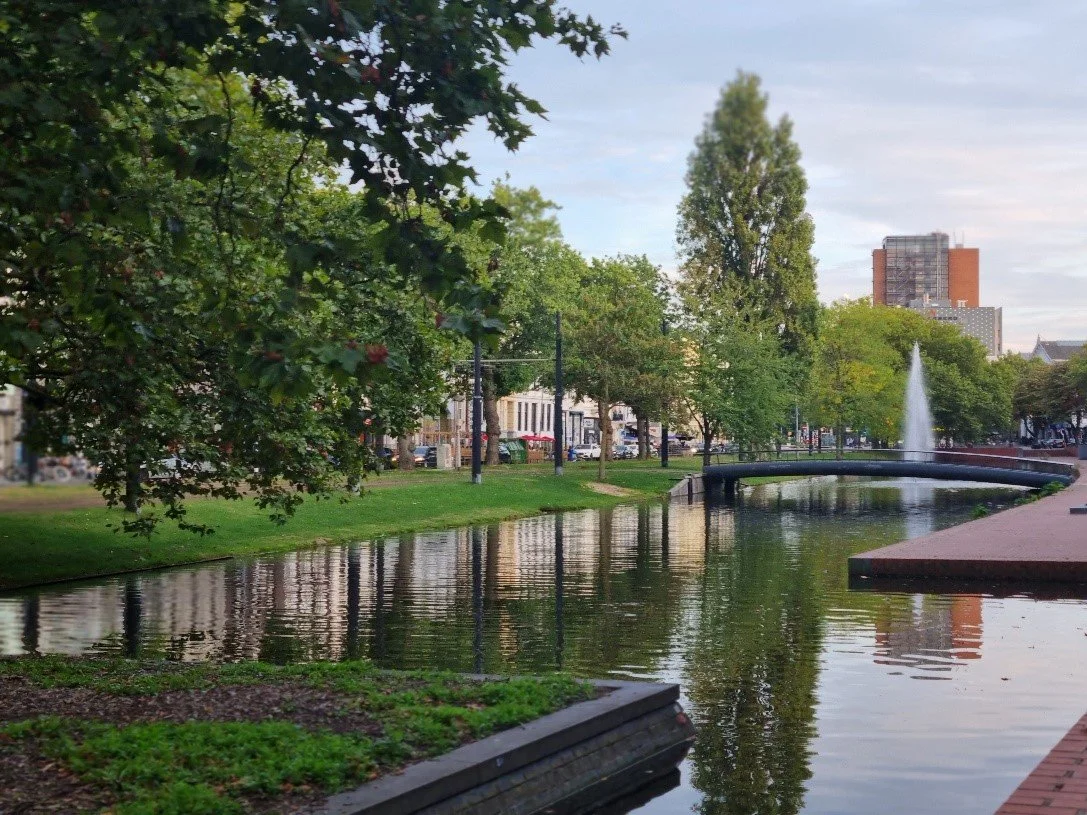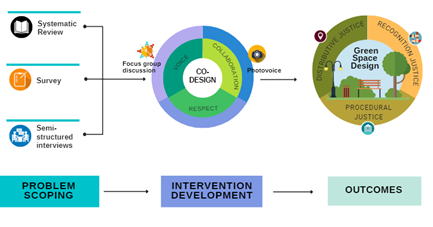Using a co-design approach to create an inclusive and functional green space for all
The research team from Imperial College London, including Dr. Tilly Collins, Dr. Alexandra Collins, and Thuy Nguyen has been working on a project exploring the potential of using a co-design approach in creating a green space that is inclusive and functional for all. The team uses a combination of survey, interview, and focus group to explore people’s perspectives and involve them in the process of designing a green space, with the goals of fostering inclusivity, ensuring functionality, and creating green spaces that benefit everyone. This project is being funded by the RECLAIM Network Plus.
Inclusivity in design
Inclusivity should be at the forefront when designing green spaces. This means considering the diverse needs of individuals with varying physical abilities, ages, and cultural backgrounds. By involving members of these groups in the co-design process, we can gain valuable insights into their unique requirements and preferences. For instance, individuals with mobility challenges can provide input on accessible pathways, ramps, and seating arrangements. Similarly, children and seniors can offer suggestions on play structures, seating areas, and amenities that cater to their specific needs.
In addition, creating a functional green space requires careful consideration of the activities and amenities that will be provided. The co-design approach enables different user groups to voice their preferences and contribute their ideas. For example, fitness enthusiasts may propose outdoor workout stations, while dog owners may request dedicated pet-friendly areas. By incorporating these suggestions, green spaces can become versatile environments that accommodate a wide range of activities, enhancing the overall functionality and enjoyment for all users.
Community engagement is key
Engagement with the community is key to the success of co-designing inclusive and functional green spaces. Therefore, the research team has been conducting surveys and interviews to enable a diverse range of voices to be heard. These interactions provide an opportunity for individuals to express their desires and concerns regarding the green space design.
The project will also include focus groups that come with an element of photovoice to allow participants to work together and create a green space. In such focus groups, the researchers will only act as a facilitator, and participants will play an active role in the discussion and co-design activities. In doing so, the researchers aim to instil in the participants a sense of ownership and foster a greater connection among participants.
Designing inclusive and functional green spaces is essential for creating vibrant and sustainable communities. A co-design approach that engages diverse stakeholders ensures that everyone's needs and preferences are considered, resulting in spaces that cater to a broad range of users. By fostering inclusivity, functionality, and sustainability, these green spaces become valuable assets that promote physical and mental well-being while fostering a sense of community. Through collaboration and co-design, we can create green spaces that truly belong to and serve everyone.
This work has been supported by the UKRI-funded RECLAIM Network Plus grant (EP/W034034/1).
Thuy Nguyen (PhD Student) , Dr Tilly Collins (Senior Academic) and Dr Alexandra Collins (Lecturer in Environmental Sustainability) at Imperial College London .



